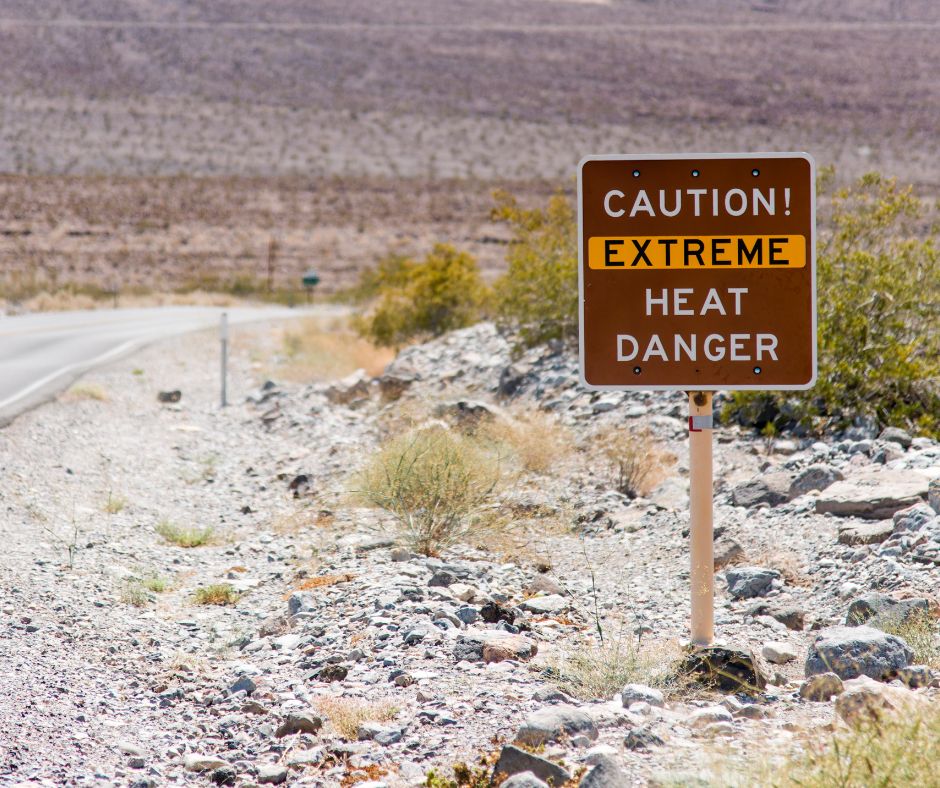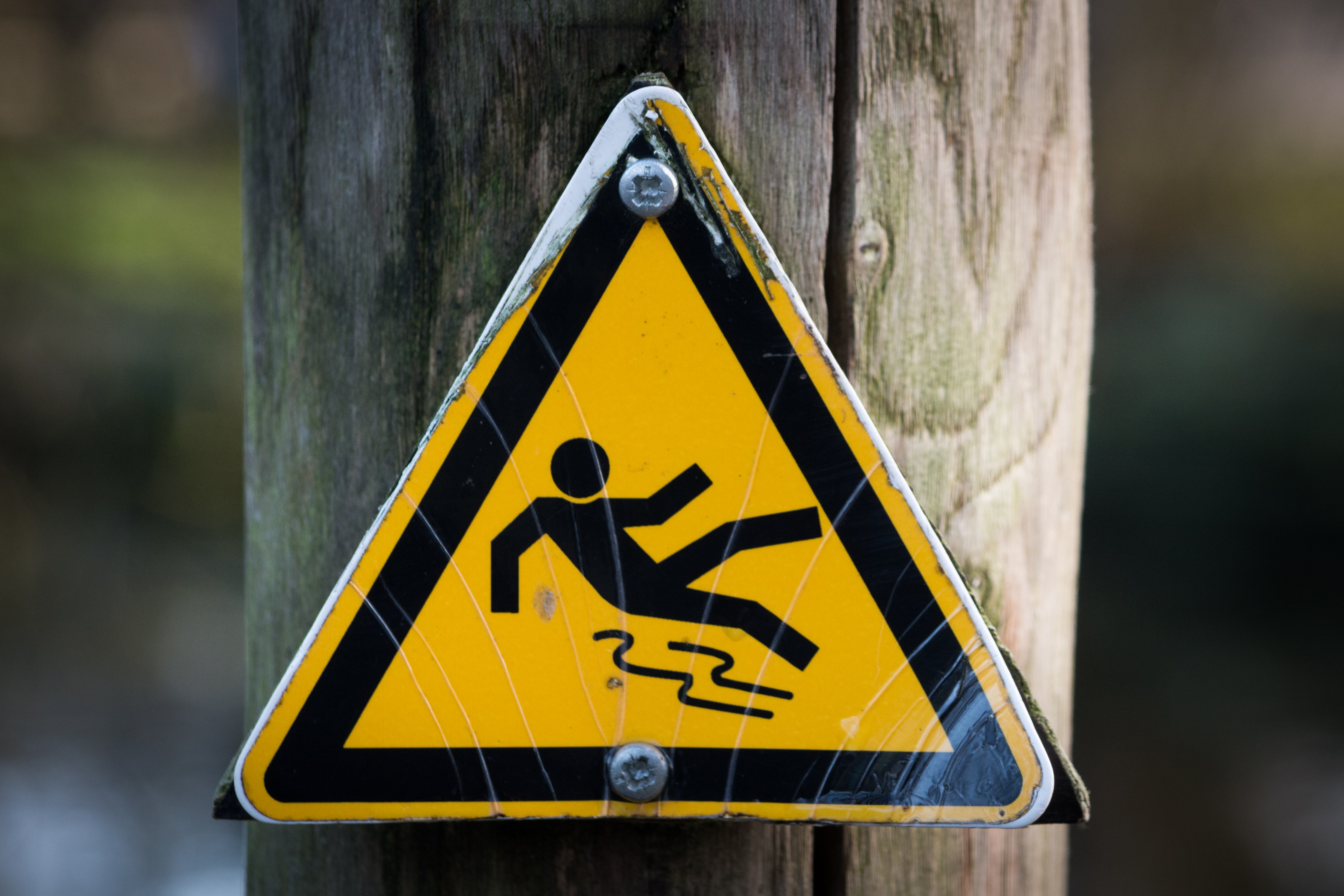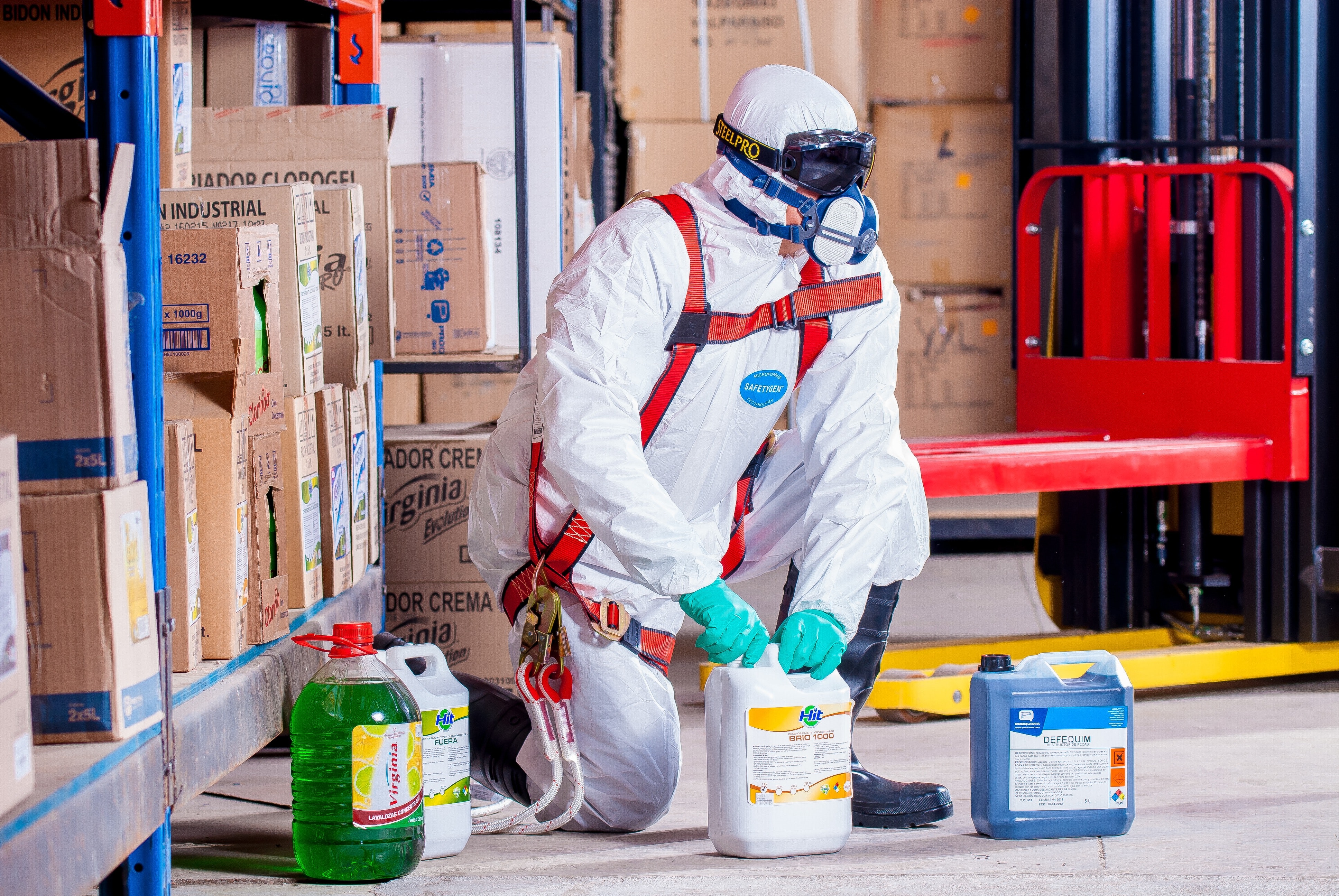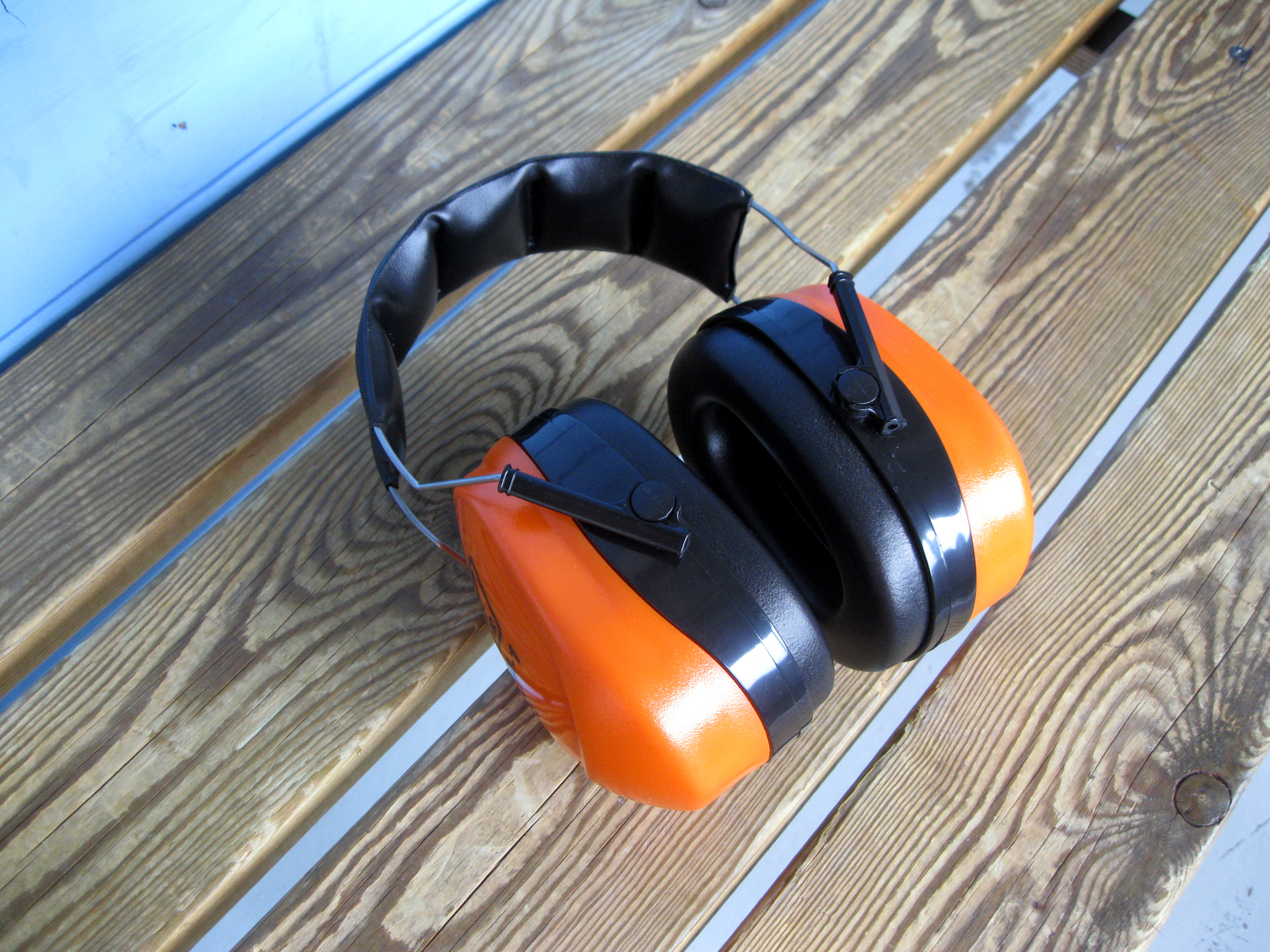Posted By Brandy King
October 28, 2024
Category: Osha, Top Ten, Most Cited, Violations, Fall Protection, Ppe, Respiratory Protection
OSHA released its annual Top 10 list of most cited workplace safety standards earlier this month at the National Safety Council Congress & Expo in Orlando, Florida. The violations making it into the top 10 are the same as last year, but their respective place in the top 10 may have changed. On the bright side, most categories saw fewer violations in the last year, compared to the prior year’s data. Respiratory protection and PPE were the two categories that saw increases, and these violations are avoidable with the right knowledge, programs, and enforcement in place.
Many employers don’t realize that they need to provide respiratory protection to employees in certain roles. Check out our blog on respiratory protection programs to get an idea of what’s involved.
The list reflects violations from October 2023 through September 2024, and is based solely on federal OSHA data. For yet another year, Fall Protection (general requirements) was #1 with more than double the violations of the next largest category, and hasn’t moved from that spot for 13 years.
1. Fall Protection – General Requirements: 7,271 violations
2. Hazard Communication: 3,213
3. Ladders: 2,978
4. Scaffolding: 2,859
5. Powered Industrial Trucks (1910.178): 2,561
6. Lockout/Tagout (1910.147): 2,554
7. Respiratory Protection (1910.134): 2
Posted By Brandy King
September 24, 2024
Category: Hazcom, Osha, Ghs, Compliance, DOT, Safety Update
OSHA Issues Final Rule on HazCom Standard to Align with Revised GHS
In July, OSHA’s final rule on the Hazard Communication Standard for classifying and labeling chemicals went into effect, and will be phased in over a four year period. Changes were made to the standard so that it will align with the 7th revision of the UN’s Globally Harmonized System (GHS), and will impact chemical manufacturers, importers, distributors and employers utilizing hazardous chemicals.
The updated standard includes changes to definitions that will impact labeling, handling and classification of hazardous chemicals. Here are some high points:
• Additions the definition of Bulk shipment, Combustible dust, Gas, Immediate outer package, Liquid, Physician or other licensed health-care professional (PLHCP), Released for shipment, and Solids.
• Clarifications to the definition of Exposure or Exposed, Pyrophoric gas
• An addition to Section (f)(5) Transportation clarifying labeling for bulk shipments and pictograms to align with Department of Transportation (DOT) requirements. This solves the issue of having to use both HCS and DOT pictograms for the same hazard.
• Smaller containers may utilize special labelling. Capacities under 100 ml will have minimum labeling requirements of a product identifier, applicable pictograms, signal word, manufacturer’s name and phone numb
Posted By Brandy King
July 24, 2024
Category: osha, heat standard, heat illness, regulatory update, safety, case law, loper bright
Late June and early July saw two important regulatory-related updates, one of which could potentially impact the other. First, on June 28, 2024 – the U.S. Supreme Court issued a ruling in Loper Bright Enterprises vs. Raimondo that may change who is responsible for interpreting laws and regulations issued by a government entity.
Prior to June 2024, the US Supreme Court was guided by the 1984 ruling in Chevron vs. Natural Resources Defense Council Inc – which determined that the agency that created the statute in question would be deferred to on interpretation, unless Congress had specifically addressed it previously. This has since been called the “Chevron Deference.”
Following the June 28th Loper Bright ruling, the judicial branch will have the power to interpret such statutes. This change in administrative law could impact any employer that is subject to government regulations, including matters involving OSHA.
Speaking of OSHA, they made headlines again in July as the proposed heat illness rule was finally made public. If you’re unfamiliar with the rulemaking process, it can still take another year or more for this proposed rule to become a reality that employers must comply with. Once the proposed rule is officially published in the Federal Register, it will then be open to commentary from interested parties for 120 days.
However, it’s important to note that OSHA still has a National Emphasis Program (NEP) on heat i
Posted By Brandy King
February 22, 2024
Category: Osha, Safety, Osha Citation, Osha Inspection, Osha Investigation,
Some of the calls and emails we receive from Spooner clients may be preventive and simple, others can be panicked, and everything in between. One of the things that sets Spooner apart is that we don’t just have a safety services team – we encourage our clients to take advantage of those services. We offer a 24/7 OSHA-Safety hotline to all of our clients, we can assist them in OSHA informal conferences, and we advise them to call us right away when OSHA is involved (or will be). The knee-jerk reaction for many people is to just start talking when OSHA shows up, announced or not. We’d recommend contacting us and/or your attorney before doing anything else. If you don’t have an attorney that is well-versed on labor and employment law, we can connect you with one. This isn’t something for your tax or real estate attorney to handle. There’s no need to make any admissions of guilt during the inspection. The importance of understanding the OSHA process and your rights before they come knocking can’t be overstated. Every inspector will present differently, but they’re always trying to get information – that’s their job. Regardless of what they find during the inspection, there’s a good chance the employer may have recourse in negotiating a settlement better than the “as written” citation.
It’s not unusual for our safety team to assist clients in getting a case dismissed before it even reaches
Posted By Brandy King
February 22, 2024
Category: Ergonomics Assessment, Ohio Ergonomic Consultant, Injury Prevention, OSHA
Ensuring the wellbeing of your employees is not only a moral imperative, but also a strategic advantage. One critical aspect of workplace safety often overlooked is ergonomics—the science of designing workspaces, tools, and processes to fit the capabilities and limitations of human workers.
Why should you invest in ergonomics assessments?
Reduced Workplace Injuries: Ergonomics assessments identify potential hazards related to repetitive tasks, awkward postures, and heavy lifting. By addressing these issues proactively, you can significantly reduce the risk of musculoskeletal injuries, strains, and sprains among your workforce.
Enhanced Productivity: When employees work in comfortable and efficient environments, productivity soars. Ergonomics assessments optimize workstations, minimizing unnecessary movements and streamlining processes. A well-designed workspace allows employees to focus on their tasks without discomfort or fatigue.
Cost Savings: Workplace injuries lead to lost productivity, medical expenses, and workers’ compensation claims. Investing in ergonomics proactively can prevent these costs in the future. Moreover, a safer workplace attracts and retains skilled workers, reducing turnover expenses.
Compliance and Legal Requirements: Regulatory bodies are increasing their scrutiny of ergonomics. OSHA doesn’t yet have a specific standard for ergonomics, but you’ve probably heard about the numer
Posted By Brandy King
January 17, 2024
Category: OSHA, Electronic Recordkeeping, Form 301, Form 300, OSHA 300A, Safety, Incident Reporting, Compliance
It’s time to post and electronically submit your OSHA logs - and this year, submission requirements will impact far more U.S. employers. We discussed this in detail when the rule was finalized in July 2023. Effective January 1, 2024, OSHA will require employers with over 100 employees in certain high hazard industries to complete electronic records submissions of Forms 300 and 301, in addition to Form 300A. These are records that covered employers should already be keeping, but previously have not been required to submit. The impacted industries include (but aren’t limited to) retail, wholesale, performing arts, manufacturing, farming, and grocers. Our safety team agrees that the fastest, easiest way to find out your company’s submission requirements is to use this ITA Coverage Application. Enter your company’s NAICS code and employee count, and it will confirm which logs should be submitted. As a general guide:
20-249 employees and on this list must submit 300A
100 or more employees and on this list must submit the 300A, 301 and 300 log.
Employee count is “per establishment,” not entire corporation size. So, what is OSHA’s definition of an “establishment?”
An establishment is a single physical location where business is conducted, or where services or industrial operations are performed. For activities where employees do not work at a single physical location - such as construction, transportation, communication
Posted By Brandy King
November 27, 2023
Category: NLRB, NLRA, OSHA, Compliance, Regulatory Agencies, Safety
The National Labor Relations Board (NLRB) announced on October 31, 2023 that they’ll be strengthening their partnership with OSHA on referrals, sharing information, training, and outreach. The Memorandum of Understanding allows OSHA and NLRB to work together more efficiently to enforce labor laws and protect the rights of workers.
Assistant Secretary for OSHA Doug Parker stated, "Everyone should be able to exercise their legal rights in the workplace without fear of losing their job or other forms of punishment.” He noted that the partnership will expand the capacity of both agencies to protect workers raising concerns about workplace violations or retaliatory activity.
This arrangement is likely to increase overall understanding of workers’ rights under federal anti-retaliation and whistleblower protection laws. The two organizations have built a fact sheet to help workers understand their rights and what recourse they have and what recourse they have if those rights are infringed upon. You can find that fact sheet here.
It shouldn’t be news to employers that you can’t (and shouldn’t) retaliate against employees for exercising their rights when it comes to workplace safety. If you don’t already have this poster alongside all of your other required communications to employees, you can order one for free here. We’re sharing the news of this partnership because it stands to amplify the already aggressive stan
Posted By Brandy King
August 25, 2023
Category: osha, osha NEP, workplace safety, forklift operator, warehpuse, distro, amazon dsp, courier service, parcel service
In July, OSHA announced the beginning of a three-year National Emphasis Program (NEP) focused on the warehousing industry. The NEP will also encompass mail and parcel processing, local delivery services, and high-risk retail workplaces. Assistant Secretary of Labor Doug Parker said in a statement that OSHA’s enforcement efforts are “designed to do one thing: lead to permanent change in workplace safety.” The agency will select establishments (based on criteria outlined in the NEP) for in-depth safety inspections that zoom in on the aspects of material handling, means of egress, powered industrial truck operations, fire protection and walking/working surfaces. The inspected establishments will be chosen from both companies with industry codes encompassed in the program, as well as retail establishments with high injury rates, especially those resulting in lost work days (high DART rates).
The number of U.S. employees in the warehousing and distribution center industries has more than doubled in the last ten years, accounting for nearly two million workers across the country. A lot of that growth can be attributed to things like rising consumer demand along with Amazon’s continued growth (which was meteoric during COVID). COVID caused a surge in consumers preferring goods to be dropped at their door, which drastically increased the numbers of not only first-leg drivers, but “last-mile” drivers
Posted By Brandy King
July 21, 2023
Category: Safety Consulting, Osha, Osha Compliance, Osha Inspections, Informal Conference, Citations, Loto, Safety Training
Things aren't slowing down at OSHA. If you feel like they've been mentioned in the news a lot lately, that's because they're keeping very busy. Workplace safety enforcement has added significant manpower and has been much more active than in previous years. Inspections have increased in number, as well as in breadth and depth, which is why it’s a great time to give your company a safety tune-up. There have been plenty of other regulatory distractions for management teams in 2023, which may have led to a reduction in attention to detail with required safety compliance programs. Pair that with the current OSHA administrator's aggressive background as the chief of Cal-OSHA, and your company should have a renewed desire to review OSHA compliance matters. This should include all of your written programs, as well as sub-elements under those programs.
When is the last time you updated your health & safety written programs?
When is the last time you checked to ensure all of your training is up to date and documented?
When is the last time you completed a safety walk-through of your facility, with corrective action taken for any identified discrepancies?
What are your compliance weaknesses? (Maybe you're not even sure)
What are the underlying safety deficiencies contributing to your workplace injuries, leaving you vulnerable to OSHA penalties, and what are you doing to correct those issues?
These a
Posted By Brandy King
June 14, 2023
Category: osha, mandate, heat illness, heat stroke, safety, inspections, NEP, heat stress
Let’s not forget that OSHA’s Heat Illness Nation Emphasis Program (NEP) is still going strong. On days that the National Weather Service issues a heat warning or advisory for certain areas, expect OSHA to be making rounds and doing inspections in 70+ indoor and outdoor industry settings that are considered high risk for heat illness.
A study was recently published in International Journal of Environmental Research and Public Health using data reported to OSHA. The research team found that 3% of all injuries and fatalities were exertion related – and of those, a staggering 89% were heat-related. Unsurprisingly, industries associated with outdoor work like construction, agriculture, and farming show heat as being a significant occupational danger – but the stats are also high for assembly line workers. Even today, many indoor industrial environments like warehousing, and production and assembly lines, don’t have A/C throughout their entire facility. Office areas will typically be cooled - but where most of the workers are concentrated, they rely on large ceiling fans, air circulation provided by open windows and loading docks, as well as personal cooling devices brought by the employees themselves.
Much like work-related falls, heat illnesses are preventable. As an employer, you have a responsibility to provide rest, water, and shade to employees, allow new workers to acclimate to the heat in short bursts, monitor staff for signs of
Posted By Brandy King
March 27, 2023
Category: Ohio Bwc, Workers' Comp, Safety, Catastrophic Claim, Public Relations, Osha
We’ve been collecting testimonials from a few clients lately, and one of them spoke about how our safety team responded to a stressful situation in a way that gave him a lot less to worry about.
HR Associates Personnel Service in Piqua, Ohio began working with Spooner as their TPA over ten years ago. Soon after our partnership began, an employee tragically suffered a heart attack while driving a forklift - and right away, Spooner sprang into action. We provided an investigation, followed by a comprehensive study with photos of the worksite. Steve Risner, Vice President of HR Associates, told us that “having piece-of-mind on that day spoke volumes about the integrity of Spooner’s team.”
When catastrophic events happen in the workplace, management shifts into high gear to respond. Incidents like amputations, forklift accidents, fatalities, and personal illnesses that manifest at work are examples of catastrophic events that could lead to OSHA and VSSR issues. Spooner’s safety professionals can support your management team in these crisis situations by conducting thorough incident investigations to identify the root cause, and creating plans for preventive actions going forward. Catastrophic events require a swift and proactive response, so we urge you to contact us as soon as these events occur, so we can provide best
Posted By Brandy King
February 20, 2023
Category: Osha, Osha Compliance, Fairfax Memo, Combustible Dust Nep,
Secretary of Labor Marty Walsh announced his resignation in early February. At the time of the update, he has not actually stepped down and ideas are being tossed around about his potential replacement. Deputy Secretary of Labor Julie Su is expected to take over as acting secretary, which presents the possibility that she could be our next Secretary of Labor. Regardless of who fills the shoes, OSHA field offices and inspectors will stay busy (see below) – which means employers need to stay diligent.
Expansion of combustible dust NEP – This National Emphasis program has now been expanded to the following industries:
311812 – Commercial Bakeries
325910 – Printing Ink Manufacturing
321912 – Cut Stock, Resawing Lumber, and Planning
316110 – Leather and Hide Tanning and Finishing
321214 – Truss Manufacturing
424510 – Grain and Field Bean Merchant Wholesalers
The NEP was revised after enforcement reports indicated that wood and food products made up over half of the materials involved in combustible dust fires and explosions.
Instance-by-Instance Citations – Also in February, OSHA announced a change in how they may handle enforcement to discourage non-compliance. Instead of grouping citations, Regional Administrators and Area Directors can use their authority to cite each instance of non-compliance separately. These will theoretically be reserved for “high gravity,” serious, and repeated viol
Posted By Brandy King
January 19, 2023
Category: OSHA, Safety, Slips Trips Falls, Workplace Injury, Walking Working Surfaces, Soft Tissue Injury, Ohio Workers' Comp
Slips, trips, and falls continue to be a leading cause of emergency room visits for many workers in the state of Ohio, and nationwide. Some common slip, trip, and fall injuries include:
• Fractured Bones
• Lacerations
• Strains/Sprains
• Back injury
• Head injury/brain trauma
Causes of Slips, Trips, and Falls
Some common causes of these injuries include:
• Wet or oily surfaces
• Weather hazards including rain, snow, and ice
• Loose mats and rugs
• Walking surfaces that are not level
• Obstructed views
• Poor lighting
• Clutter
• Uncovered wires and cables
Preventing Slips, Trips, and Falls
There are several ways that employers can help prevent these types of incidents and keep worksites safer. The simplest way is to practice good housekeeping throughout your facility. Other options include wearing slip-resistant shoes, using caution when walking on uneven surfaces, as well as surfaces that may be slippery or wet.
Good Housekeeping Tips
Good workplace housekeeping is an easy way to prevent most slips, trips, and falls, and it’s often overlooked. Simply cleaning up your work area as you go can help on the job site. Examples of good housekeeping
Posted By Brandy King
December 08, 2022
Category: osha, regulations, 2022 osha review, heat illness standard, regional emphasis programs, hearing conservation, ITA reporting
OSHA was very well-funded and staffed throughout 2022, and they kept themselves busy. There were plenty of Regional Emphasis Programs (REPs) in region 5 (which includes Ohio), including grain handling, demolition, powered industrial vehicles, tank cleaning operations, and hearing conservation – plus a National Regional Emphasis program on Heat Illness.
While many businesses had largely forgotten about COVID protocols and safety measures by 2022, certain sectors of the healthcare industry were still under the agency’s microscope this year. The measures aimed at healthcare employers are “advisory” in nature, not considered standards or regulations. Still, OSHA did renew their focus on inspecting healthcare facilities from March through June 2022. The short-term initiative was directed at healthcare facilities that treat or handle COVID-19 patients, like hospitals and skilled nursing facilities. With surges still occurring, we could see more of these focused inspections in 2023.
A number of National Emphasis programs were also issued, including one for Heat Illness. This issue has become a top priority over the last few years, due to climate change creating unbearably hot conditions for both indoor and outdoor workers. OSHA published an Advance Notice of Proposed Rulemaking back in October 2021, with an extended comment period through late January 2022. In simpler terms, they’re indicating that a standard is being considered and took the
Posted By Brandy King
November 14, 2022
Category: Respiratory Protection, Respirator Fit Testing, Written OSHA Programs, Osha, PFT, Occupational Health, 1910.134
If your workplace exceeds the permissible exposure limits of airborne contaminants (more on that here), there are a few items you should have in place, starting with a written respiratory protection program. If this isn’t something your own safety staff is comfortable putting together, you can outsource it to a third party. Spooner’s safety team is well-versed in helping develop these types of programs to help businesses remain compliant. Once the written program is finalized, you’ll need to select the appropriate respirator based on the type of exposure. After both of those tasks are complete, it’s time to schedule respirator fit testing.
Even though a pulmonary function test (PFT) is not always required by OSHA prior to wearing a respirator on the job, the medical provider performing the certification may require a PFT as part of the process. A PFT is required for employees wearing respirators for protection from asbestos, cotton dust, benzene, formaldehyde, silica and beryllium, to name a few.
Any employee planning on wearing a respirator at work will need to complete OSHA’s Respirator Questionnaire. Simply asking your employees to complete one prior to wearing a respirator isn’t sufficient - OSHA requires that a physician [or other licensed health care professional (PLHCP)] to review the questionnaire. How the form is completed is determined by the type of respirator worn, and certain responses may serve as a red flag that additio
Posted By Brandy King
October 13, 2022
Category: Safety, Safety Software, OSHA, Gap Analysis, Accident Reporting
Since Spooner is involved in the safety programs of several of our client employers, we encourage clients to find a method of tracking data that works for them. If we’re not learning from historical trends and using available data to prevent future incidents, then why record it all (aside from OSHA, of course)? When a decision maker at one of our clients moves on to a new opportunity, they often bring Spooner with them. Many of them go on a similar role elsewhere, but sometimes they move on to become innovators and create solutions that we think would be valuable to our clients.
The Spooner team had the pleasure of working with Valerie Morris as Vice President of Safety & Risk Management at both Aetna Integrated Services and Atalian Global Services. Following her time there, she worked with colleague Chris Bellamy to design a safety software that would meet all of the needs of safety professionals. The Building Effective Safety Teams (B.E.S.T.) ™ Program includes key elements like training capabilities, gap analysis, recordkeeping and customization options. Like most software intended for company-wide use, different administrator levels can be assigned to ensure sensitive data remains private.
The B.E.S.T. Program was designed to help build cultural change in the way safety is viewed within your organization. It allows team members at all levels to engage in risk management, and puts everyone on the same page in terms of expectations and safety culture.
Posted By Brandy King
October 13, 2022
Category: Occupational Health, Occupational Safety, National Fire Safety, Workplace Safety, Fire Prevention, OSHA
Did you know that October is National Fire Safety month? This is a great time for businesses to revisit their workplace fire safety plans, as well as any other Emergency Action Plans. Based on data from the Bureau of Labor Statistics, over 125 deaths occur on average each year from workplace fires – many of which can be prevented from regular reviews, maintenance and inspections. Minimizing workplace fire hazards is the first step in preventing fires – so how do you recognize these issues?
Report any electrical hazard you see, such as faulty or bad wiring. Frayed or damaged electrical cords, as well as damaged electrical outlets/receptacles are a common reason for fires to start.
Ensure that flammables are stored properly. If your company uses or facilitates flammables, they must be stored in a flammables cabinet, and inspected regularly.
Regularly inspect fire-prone areas like employee break rooms, electrical storage or server rooms, and laboratories/areas where flammables or chemicals are stored.
Reviewing your emergency plans, exit routes, and drills to look for “holes” in your system or plans.
Properly maintaining your fire suppression system, extinguishers, and providing employee training on fire safety.
Most offices or workplaces utilize ABC fire extinguishers, which can extinguish ordinary combustibles, flammable liquids, and energized electrical equipment. Knowing how to properly use fire extinguishers is important, following
Posted By Brandy King
May 20, 2022
Category: OSHA, Regional Emphasis Program, Osha Region 5, Audiometric Testing, Baseline Audiogram, Hearing Conservation, Occupational Noise
We’ve been talking a lot lately about OSHA’s Hearing Conservation Program, mostly due to the influx of Regional Emphasis Programs we’ve seen involving it lately. The program involves more than just noise sampling and providing hearing protection – there’s also a medical component.
When an employer determines they need to participate in the conservation program, one of the first steps to take is finding a healthcare provider that can perform audiograms, or audiometric testing. A “baseline” or initial test will need to be performed on affected employees. This provides a starting point that future audiograms can be compared to, and will show if the employee is experiencing any changes in their hearing abilities. Baseline testing must be performed within six months of an employee’s initial exposure to sound levels exceeding 85 decibels (dB) over an 8 hour time-weighted average (TWA). Exceptions can be made on the time frame for the baselines if the employer utilizes a mobile testing unit. For baseline and annual testing, the worker should not be exposed to workplace noise for 14 hours prior to the audiogram.
Employees’ annual audiograms should always be completed within one year of the baseline or previous year’s test. Employers should compare the annual test results to the baseline results to determine if the employee has lost hearing ability or experienced a standard threshold shift (STS). Not ev
Posted By Brandy King
April 20, 2022
Category: Osha, Mandate, Heat Illness, Heat Stroke, Safety, Inspections, NEP,
There’s no shortage of OSHA emphasis programs lately, and now they’re giving you another thing to worry about. Earlier this week, the Department of Labor announced that OSHA has launched a new National Emphasis Program (NEP) to protect workers from both indoor and outdoor heat hazards. They’ll be conducting heat-related workplace inspections to get ahead of avoidable injuries, illness – or in some cases, fatalities.
DoL Secretary Marty Walsh made the announcement at an event in Philadelphia on April 12, with the initiative already having been made effective on April 8. The plan is to encourage employers to take proactive steps to avoid illness and death for workers that are exposed to high heat conditions. The average number of deaths caused by heat-related illness has doubled since the 1990s. Employers who operate outdoors regularly are typically aware of these risks, but companies where most employees work indoors haven’t considered themselves at risk of answering to OSHA on this. Many large manufacturers are still operating with no air conditioning in their factories, and may only be providing bits and pieces of what employees need to stay safe in these stifling environments.
The program will involve OSHA inspecting indoor and outdoor employer sites across 70+ high-risk industries, specifically in areas where an official heat warning or advisory has been issued. If it’s 804° F or higher, inspectors and com
Posted By Brandy King
April 14, 2022
Category: Osha, Hearing Conservation, Audio, Audiograms, Noise Monitoring, Hearing Protection, Decibel Level, OSHA PEL, OSHA REP
We mentioned back in August that OSHA’s Region 5 would begin a Regional Emphasis Program (REP) on Exposure to Noise Hazards in the Workplace. This brings up a question that our safety team hears often – how loud is too loud?
The most common answer you’ll hear is between 85 and 90 decibels (dB). That’s roughly the same level of noise you’d be exposed to while operating a lawn mower. Although this is OSHA’s action limit and PEL (permissible exposure limit), there’s still more to think about. If you need to raise your voice to speak to someone three feet away, or employees voice concerns about trouble hearing or ringing in the ears - noise levels might be over 85 dB. The occupational noise exposure standard requires that all employees exposed to noise levels 85+ dB on an 8-hour shift (TWA, or time weighted average) must be included in a hearing conservation program.
The CDC estimates that 22 million workers are exposed to potentially damaging noise at work each year. Whether you work at a sports venue, on a tarmac, or operate a jackhammer—hearing loss is preventable. Hearing conservation programs strive to prevent initial occupational hearing loss, preserve and protect remaining hearing, and equip workers with the knowledge and hearing protection devices necessary to safeguard themselves. A good first step is having a noise s














